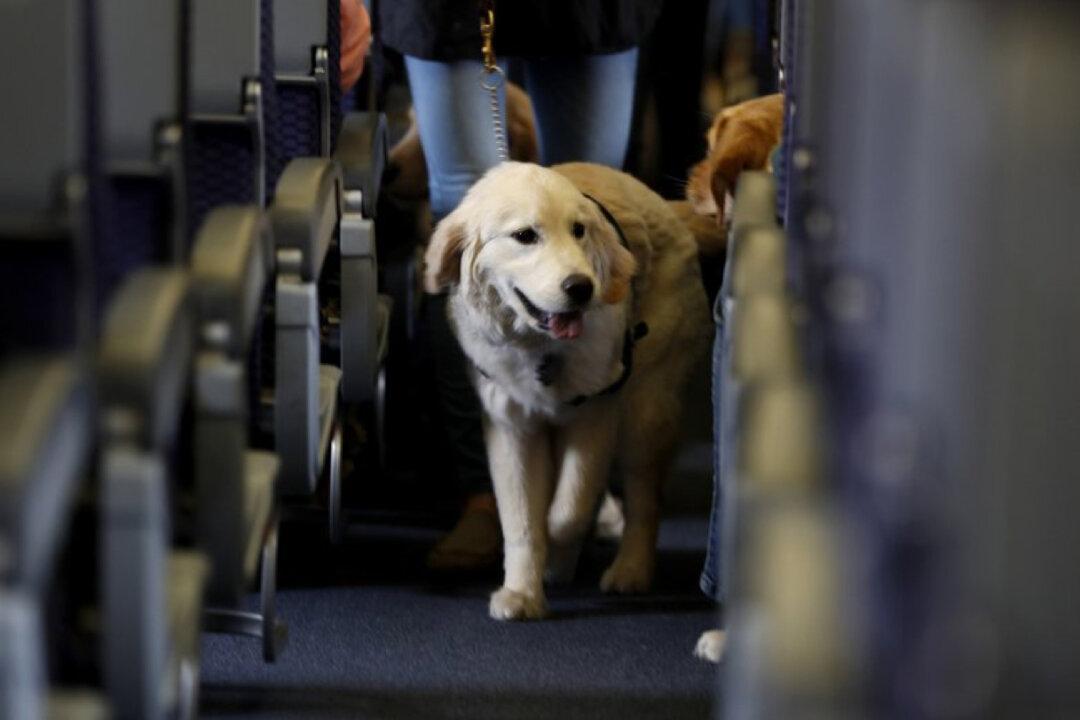The U.S. Department of Transportation has announced new plans that may allow airlines to ban untrained emotional support animals from airplanes.
New proposals issued on Jan. 22 suggest that only dogs who are “individually trained to do work or perform tasks for the benefit of a qualified individual with a disability, including a physical, sensory, psychiatric, intellectual, or other” will qualify as service animals and will be allowed on planes.




